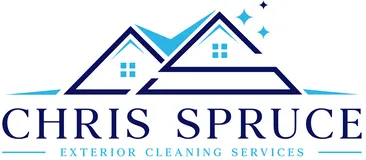Can Pressure Washing Damage My Driveway? What You Need to Know
If you’ve ever admired a neighbour’s spotless driveway or noticed your own looking a bit worse for wear, you’ve likely considered pressure washing. It’s a popular method for sprucing up outdoor surfaces, and with good reason – the results can be quite impressive. But as you contemplate giving your driveway a thorough clean,
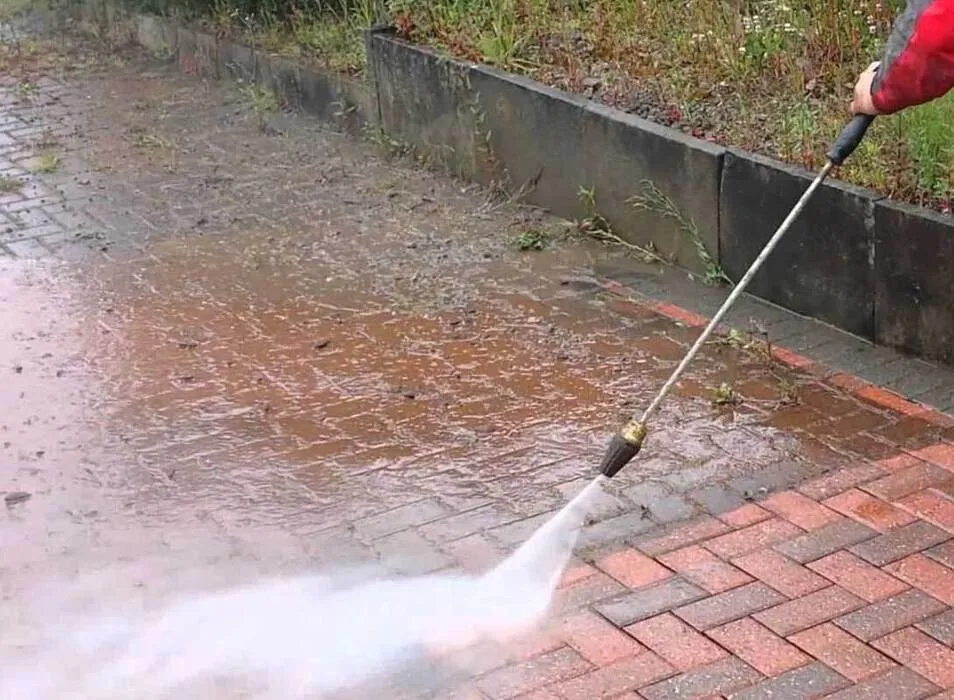
You might find yourself wondering: “Can pressure washing damage my driveway?”
It’s a valid concern. After all, your driveway is more than just a place to park your car; it’s an investment in your property and plays a significant role in your home’s kerb appeal. The last thing you’d want is to cause unintended harm whilst trying to improve its appearance.
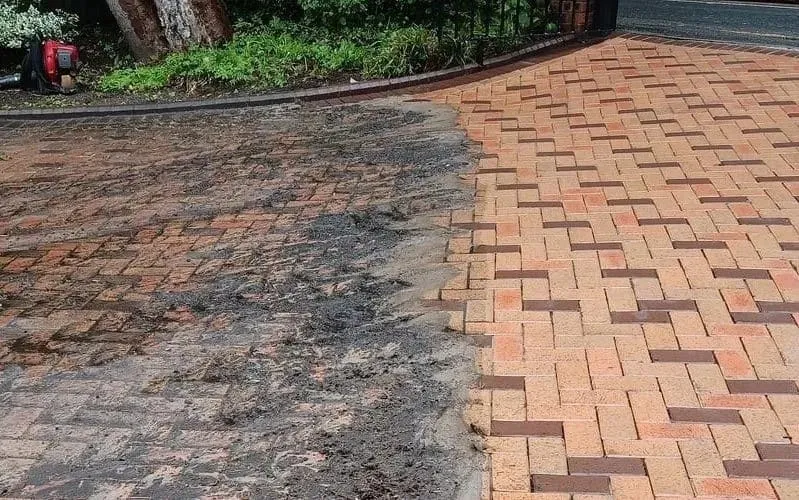
In this article, we’ll talk everything about ins and outs of pressure washing driveways.
We’ll look at how it works.
And what you can do to ensure your driveway gets the clean it deserves without compromising its integrity.
Whether you’re a DIY enthusiast considering tackling the job yourself or weighing up professional services, this guide will equip you with the knowledge you need to make an informed decision.
How does a pressure washing work?
The magic of pressure washing lies in its ability to concentrate water into a powerful jet.
A pressure washer takes ordinary water from your garden tap and pumps it out at high speed through a narrow nozzle. This creates a forceful stream that can dislodge even the most stubborn dirt.
Different types of pressure washers and their uses
Understanding these basics will help you make informed decisions about whether pressure washing is right for your driveway, and if so, what type of machine or service might be most suitable.
Pressure washers come in various shapes and sizes, each suited to different tasks:
Electric pressure washers: These are typically lighter and quieter, ideal for smaller jobs around the house like cleaning patio furniture or your car.
Petrol-powered pressure washers: These are better suited for larger areas or tougher cleaning jobs, like tackling a grimy driveway.
Hot water pressure washers: These machines heat the water, making them particularly effective at removing oily or greasy stains.
The power of a pressure washer is measured in pounds per square inch (PSI) and gallons per minute (GPM). For most residential use, a machine with 1300-2300 PSI should suffice. However, it’s worth noting that more power isn’t always better – especially when it comes to delicate surfaces.
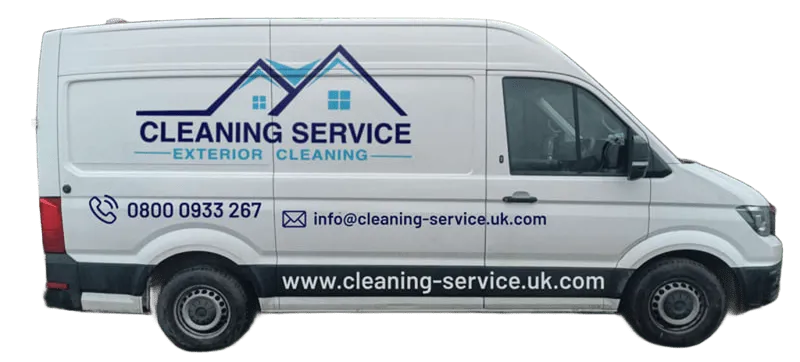
- Only Eco-friendly products
- Outstanding results
- Long-term Warranties
- Guaranteed Satisfaction
Potential Risks of Pressure Washing Driveways
It’s worth noting that these risks don’t mean you should avoid pressure washing altogether. Rather, they highlight importance of using the right technique and equipment for your specific driveway.
Whether you’re considering doing it yourself or hiring a professional, understanding these potential pitfalls will help you make informed decision.
While pressure washing can work wonders on your driveway, it’s not without its risks. Here are some of the potential issues that could arise if the job isn’t done properly:
Surface etching
Imagine using a power hose to write your name in the sand at the beach. Now picture that same effect on your driveway.
If the pressure is too high or the nozzle is held too close, it can etch patterns into softer materials like limestone or concrete.
This not only looks unsightly but can also weaken the surface over time.

Chris Spruce Cleaning Service ltd
SD Office, 491 Wight Moss Way, Southport PR84 ZZ
Phone: 0800 0933 267
Email: info@cleaning-service.uk.com
https://maps.app.goo.gl/9QPmRF5aX8pgREre8
What our Customers say
EXCELLENTTrustindex verifies that the original source of the review is Google. Chris did an outstanding job on our very tired and neglected garden. In one morning he transformed the place. I can't thank you enough. Very good service, punctual and polite. Thank you Chris, see you again soon!Posted onTrustindex verifies that the original source of the review is Google. Chris Spruce did a brilliant job cleaning the render on our house and the roof on our rental. He turned up on time, worked hard all day and left everything tidy. The render had gone black but now it looks as good as the day it was done. Really impressed and would definitely recommend him!Posted onTrustindex verifies that the original source of the review is Google. Chris is such a professional, with a great attention to detail. Our old imprinted concrete driveway has been meticulously cleaned, recoloured and then new resin applied. It looks fabulous. We are so pleased and have had so many people admiring the driveway. If you want a job done well, we highly recommend Chris.Posted onTrustindex verifies that the original source of the review is Google. Exterior cleaning of render on my house . It came up beautifully some heavy smoke stains on chimney removed all stains gone . Looks excellent. I was advised how to care for render and also what to do to try and stop stains recurring in the future . Very useful advice received. A very knowledgeable and friendly team worked hard and cleaned up nicely after they finished. I would highly recommend Chris and his team.Posted onTrustindex verifies that the original source of the review is Google. Chris did an excellent job , the render looks like new. Really responsive and no fuss , kept in touch with me all through the process. 3 months on since I had the work done at it’s still looking really good. I will be using Chris again when I need any more work doing.Posted onTrustindex verifies that the original source of the review is Google. Chris is a lovely guy arrives on time does a fantastic job. Have used him a few times now and will continue to use him to maintain our house.Posted onTrustindex verifies that the original source of the review is Google. Fantastic job by Chris and his team as always. Well recommended.Posted onTrustindex verifies that the original source of the review is Google. Amazing job, exceeded expectations. All with the minimum of disruption. Very professionalPosted onTrustindex verifies that the original source of the review is Google. Excellent friendly service. Job done thoroughly and quickly. I would fully recommend this contractor.Posted onTrustindex verifies that the original source of the review is Google. Chris has done an amazing job cleaning our resin driveway, it looks like new again. Chris also took the time to clean up our sandstone steps which must have had decades of grime. Fantastic job and Chris is a really lovely chap, friendly and hardworking and has given great advice for future maintenance. I would highly recommend him for any cleaning jobs.Verified by TrustindexTrustindex verified badge is the Universal Symbol of Trust. Only the greatest companies can get the verified badge who has a review score above 4.5, based on customer reviews over the past 12 months. Read more
Concrete spalling
Concrete might seem indestructible, but it can be vulnerable to high-pressure water.
Spalling occurs when the top layer of concrete flakes off, revealing the rough aggregate underneath.
This can happen if the pressure is too high or if the concrete is already weakened by age or weather exposure.
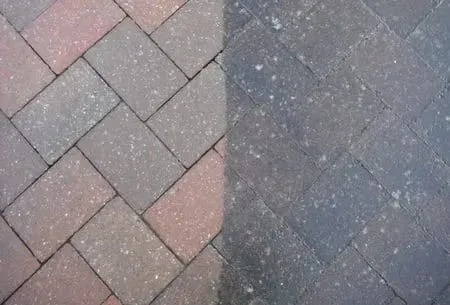
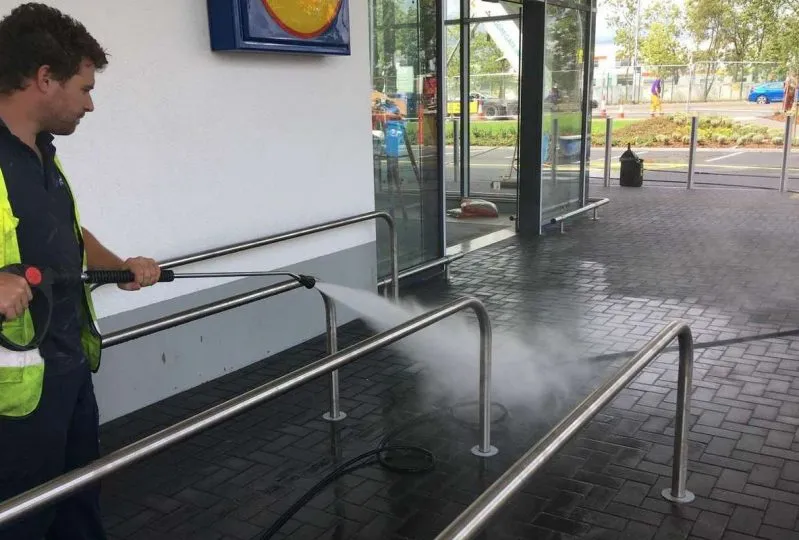
Damage to sealant or coating
Many driveways have a protective sealant or coating. Overzealous pressure washing can strip this away, leaving your driveway exposed to the elements and potentially shortening its lifespan.
Worsening existing damage
If your driveway already has small cracks or chips, high-pressure water can force its way into these openings, making them larger and potentially causing more significant structural issues.


Enquire about Our Pressure Washing Service here
Factors That Influence Potential Damage
When it comes to pressure washing your driveway, several factors can affect the likelihood of damage. Such as:
Driveway material
Different materials react differently to pressure washing:
- Concrete: Generally robust, but can be etched or suffer spalling if not careful.
- Asphalt: More delicate than concrete and can be damaged by high pressure or hot water.
- Block paving: The risk here is mainly to the jointing sand, which can be washed away.
- Resin-bound: Typically more resilient, but excessive pressure can dislodge the stones.
Operator skill and experience
Let’s be honest – using a pressure washer isn’t as simple as it looks. The technique matters:
- Distance from the surface: Holding the nozzle too close can concentrate the force in one spot, potentially causing damage.
- Angle of spray: The wrong angle can force water under the surface or cause uneven cleaning.
- Movement: Erratic movements can create streaks or uneven cleaning patterns.
Pressure washer settings
The power of your pressure washer plays a crucial role:
- PSI: This measures the force of the water. Higher isn’t always better – too much pressure can cause damage.
- Nozzle type: Different nozzles create different spray patterns. A narrow, concentrated spray can be more damaging than a wider, gentler one.
Age and condition of the driveway
Driveways become more vulnerable with age. An older driveway or one that’s already showing signs of wear and tear is more susceptible to damage from pressure washing. Keep an eye out for existing cracks, chips, or loose materials.
So question is –
How to Safely Pressure Wash Driveway?
If you’ve decided to tackle the job yourself, then before you start, a bit of prep work goes a long way:
- Clear the area: Move vehicles, potted plants, and any outdoor furniture.
- Sweep the surface: Remove loose debris to prevent it from flying about.
- Cover nearby plants: Use plastic sheeting to protect your garden from cleaning solutions.
- Pre-treat stubborn stains: Apply a suitable cleaner to oil spots or other tough marks.
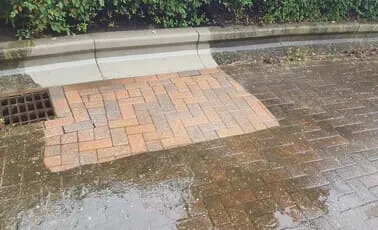
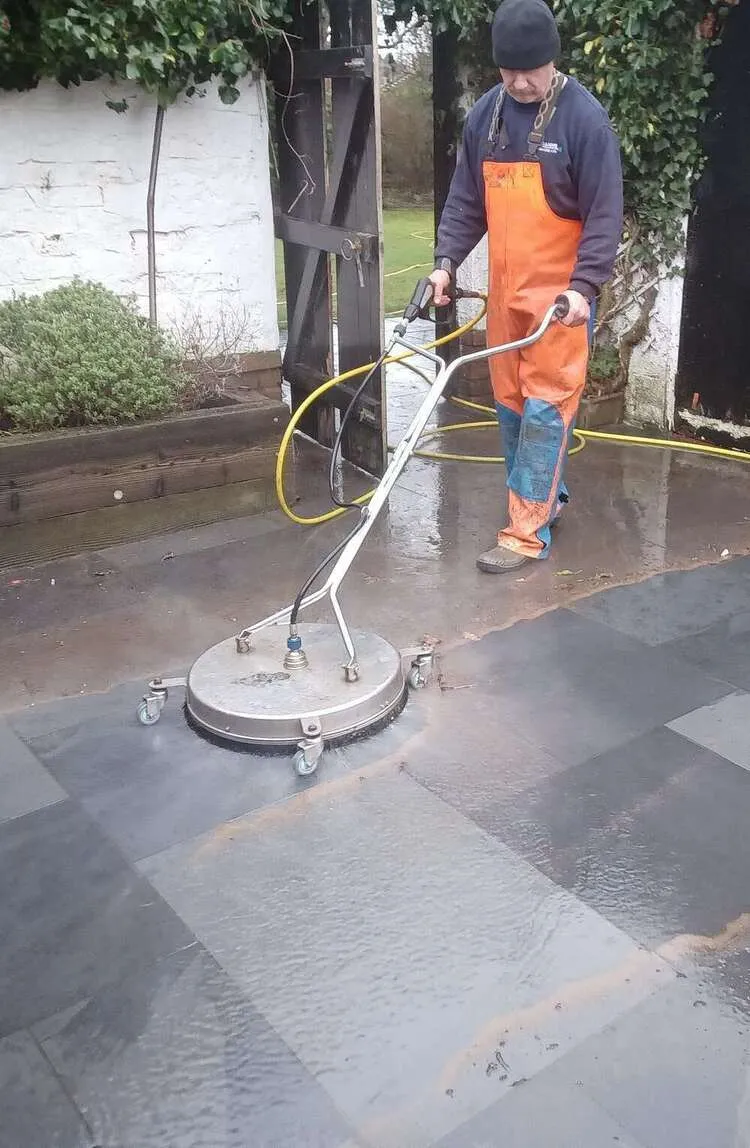
Choose the right pressure and nozzle
Getting this right is crucial to avoid damage:
- Start with a lower pressure setting and a wider nozzle angle (40° or 60°).
- Test in an inconspicuous area first to gauge the effect.
- For most driveways, 1500-2000 PSI should suffice. Avoid going over 3000 PSI.
Correct technique and distance
Proper technique is a key to safe and effective cleaning:
- Keep the nozzle at least 30cm from the surface.
- Move the spray in a steady, sweeping motion.
- Work in small, manageable sections.
- Maintain a consistent angle, usually around 45°.
If you’re not seeing results with these safer methods, it’s better to adjust your cleaning solution or consider professional help rather than increasing the pressure to potentially damaging levels.
Alternatives to High-Pressure Washing
Before deciding on a method, consider your driveway’s material, age, and condition. What works brilliantly for your neighbour’s new concrete drive might not be the best choice for your charming, older block-paved one.
If you’re concerned about potential damage from high-pressure washing, don’t worry – there are other effective ways to clean your driveway:
Soft washing techniques
Soft washing is a gentler approach that relies more on cleaning solutions than brute force:
It uses low pressure, similar to a garden hose, combined with specialised cleaning agents. These solutions break down dirt and kill algae, mould, and mildew.
After application, a light rinse is usually all that’s needed. This method is particularly good for more delicate surfaces or older driveways.
Chemical cleaning methods
Sometimes, the right cleaning solution can do most of the work:
- Degreasers are brilliant for removing oil stains.
- Oxygen bleach can tackle organic stains like moss or leaf marks.
- Acid-based cleaners can remove rust stains, but use these with caution.
Always follow the manufacturer’s instructions and wear appropriate safety gear.
Manual cleaning for delicate areas
A stiff-bristled brush can be surprisingly effective for spot-cleaning. For stubborn stains, try a scrub brush attached to a long handle to save your back. This method is ideal for small areas or spots that need extra attention. However, these alternatives might take a bit more time and effort, but they can be just as effective as pressure washing when done correctly.
When to Call a Professional
While there’s a certain satisfaction in tackling home maintenance tasks yourself, sometimes it’s best to bring in the experts. Here’s when you might want to consider calling a professional for your driveway cleaning:
- Deep-set stains that don’t budge with regular cleaning
- Significant algae or moss growth, especially if it’s slippery
- Large areas of ingrained dirt or discolouration
- Cracks or damage that might worsen with DIY cleaning attempts
Why should you hire a professional?
- Expertise: We know which cleaning methods suit different driveway materials.
- Equipment: We have access to industrial-grade equipment for more efficient cleaning.
- Time-saving: What might take you a full day could be done in a few hours by us.
- Safety: Our experts are trained to handle powerful equipment and cleaning chemicals safely.
- Comprehensive service: We offer additional treatments like sealing after cleaning.

- Only Eco-friendly products
- Outstanding results
- Long-term Warranties
- Guaranteed Satisfaction
Why Us
- Insured and licensed
- Positive customer reviews and testimonials
- Clear, detailed quotes with no hidden charges
- Knowledge of different cleaning methods, not just high-pressure washing
- Willingness to assess your driveway & discuss best approach
Maintaining Driveway after Pressure Washing
Once you’ve got your driveway looking spotless, you’ll want to keep it that way for as long as possible. Here’s how to maintain that fresh, clean look:
Applying sealant or protective coating
Consider applying a sealant after cleaning to protect your driveway from stains and weather damage. Different driveway materials require different types of sealant, so choose wisely.
For concrete, look for a penetrating sealer that bonds with the surface. Block paving might benefit from a sand stabiliser to keep the jointing sand in place. Always ensure the driveway is completely dry before applying any sealant.
Regular cleaning and maintenance tips
Sweep your driveway weekly to prevent dirt and debris from settling in. Address spills promptly to avoid staining. A bit of washing-up liquid and warm water can work wonders on fresh spills.
Use a stiff brush to scrub away any stubborn marks before they become ingrained. In autumn, keep on top of fallen leaves to prevent them from staining your driveway. During winter, avoid using salt on sealed driveways as it can damage the protective coating.

Chris Spruce Cleaning Service ltd
SD Office, 491 Wight Moss Way, Southport PR84 ZZ
Phone: 0800 0933 267
Email: info@cleaning-service.uk.com
https://maps.app.goo.gl/9QPmRF5aX8pgREre8
How often to pressure wash driveway?
For most driveways, an annual clean is sufficient.
However, if your driveway is under trees or in a damp area, you might need to clean it more frequently.
Keep an eye out for signs of algae or moss growth, which might indicate it’s time for a clean.
If you have any questions, feel free to contact us at info@cleaning-service.uk.com or alternatively fill out the contact form. Our friendly team will be happy to answer them!

Connect with Chris Spruce
Meet the Founder: Committed to delivering exceptional results for every property in North-West!
– 20+ years of experience in exterior cleaning.
– Personally involved in every cleaning project to ensure 100% satisfaction.
